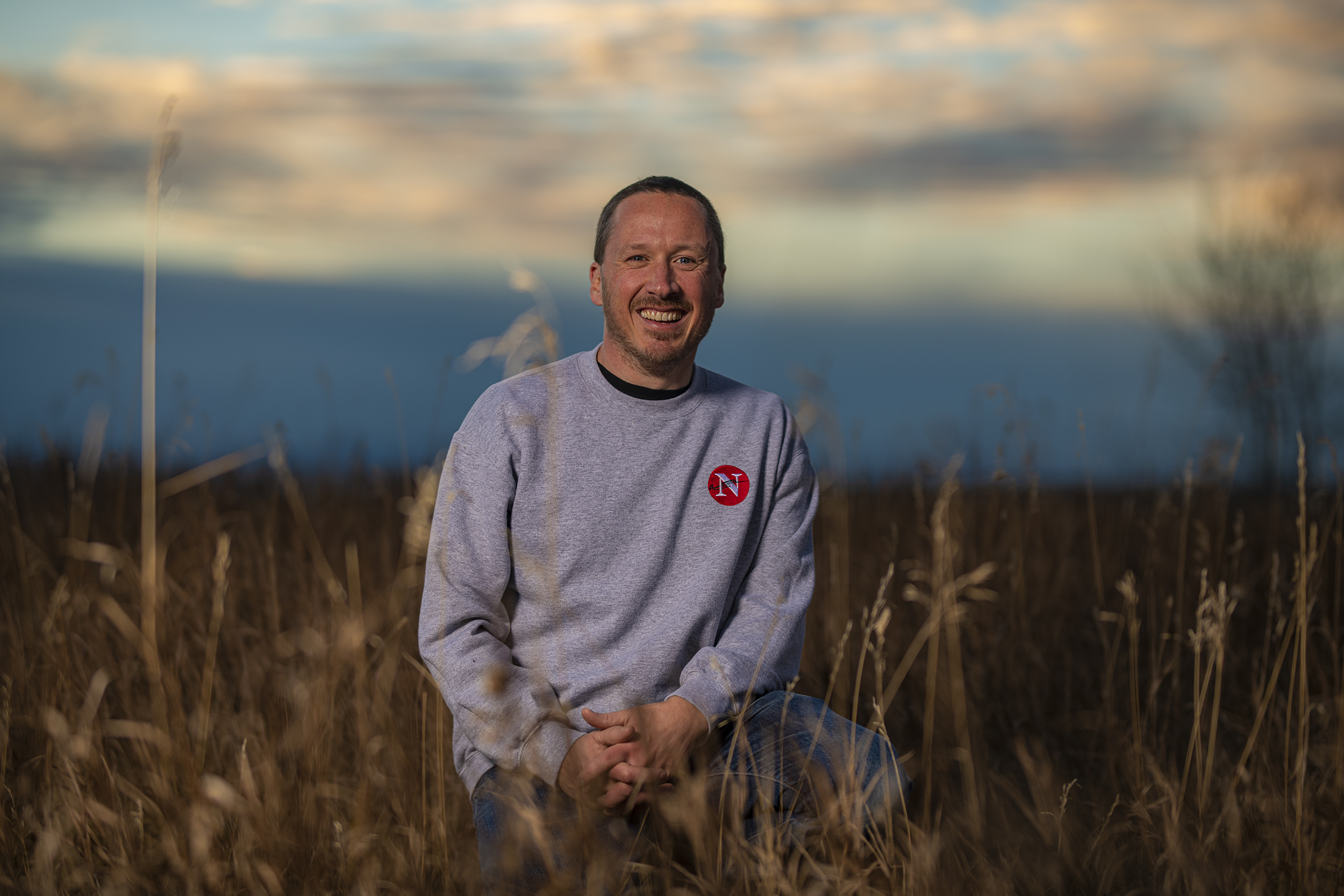
Danielle Smith says separation is about alienation. It’s really about oil
The Alberta premier’s separation rhetoric has been driven by the oil- and secession- focused Free...
Growing up in Calgary, Drew Anderson never thought he would end up staying in the city, especially to work as a journalist. But life works in funny ways and now he’s a proud third-generation Calgarian who’s made a name for himself as one of the leading political reporters in the Prairies.
The path to getting here wasn’t always clear. Even though Drew always loved writing and grew up in a household that had nightly political discussions around the dinner table, he didn’t realize journalism was something he wanted to do until he hit his 30s.
“It was right in front of me,” he says. “My sister was very pleased with herself, because she had been telling me I should be a journalist for years. But it just didn’t seem like a realistic possibility to me for some reason.”
Clearly it was meant to be because, after a stint bartending and serving in Victoria, it wasn’t long before Drew was breaking big stories as a reporter for the CBC in Calgary.
And now he gets to do it all from his home in Calgary, where he’s a proud dad of two boys and lives surrounded by pieces of Lego.
“Somehow I ended up back here and it turns out that I love it here,” he says. “That’s why I cover the Prairies — this is my home, I care about it and there’s so many things to cover here.”
We chatted with Drew about the biggest issues facing journalism today (and also got the insider scoop on the best pub in Calgary).
Deeply researched, honest and really well written. I think in-depth journalism that doesn’t bring you into the story and doesn’t take you along is kind of a failure. You can do all the research in the world but if you don’t actually give people a reason to listen to it, I think you’ve dropped the ball.
I like lifting the veil a little bit. I like going back to what motivates decisions, why policies come to be, what is the sociology behind some of these things that happened and why. I also just love digging into something that people are working really hard to keep secret that has a public interest and being able to dig under that and show people what’s going on behind the scenes. It’s always just sort of exhilarating.

We’re really lucky: we get to call people up and ask them questions, challenge industry and government and then we get to tell stories about it. It’s such a privilege to be able to do that. So we have to be able to present those stories in a way that motivates people to learn and to read, and to not overwhelm them with these doomsday scenarios. We have to be honest, even brutal, in what we say. But we have to be able to acknowledge and encourage solutions, too.
Money and misinformation. There’s this lack of resources, which basically means there’s a lack of journalists out there that are doing this job. At the same time, we’re completely buried under all of this information and so much of it is factually incorrect. So I think being able to be honest with people and have people understand that is one of the biggest challenges. We’re also slow to bring in new perspectives into newsrooms and into the stories we tell. It’s a really big challenge that not enough people are taking seriously — to broaden these conversations to more voices than we have traditionally in the past.
Taking the time to dive deep into stories as a matter of course, rather than just trying to do that in between the daily news grind, like I have been doing and that most journalists have to do. It’s such a rare privilege in today’s media landscape to actually be given space and time to look deeply into issues and tell those stories. I hope I spark conversations and change perspectives by doing that.
I read a lot. Watch TV and movies. Run. Have the odd beer with friends now that I actually go out to have beer with friends.
Ship & Anchor. It’s a classic pub. It’s like an institution in Calgary. I went to high school a block away from it so I’ve been going there since I was … 18.
Get the inside scoop on The Narwhal’s environment and climate reporting by signing up for our free newsletter. On a warm September evening nearly 15...
Continue reading
The Alberta premier’s separation rhetoric has been driven by the oil- and secession- focused Free...

Canada’s first-ever Indigenous governor general doesn’t play favourites among our majestic natural wonders, but she...

In Alberta, a massive open-pit coal mine near Jasper National Park is hoping to expand...
